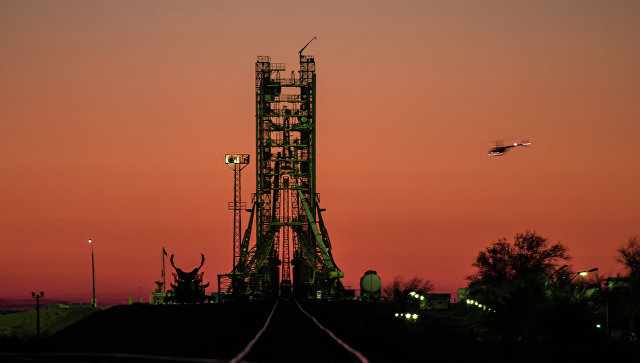The launch of the Angosat-1 satellite had to be postponed due to rubber plugs in the refueling system of the Fregat upper stage

Source: Anton Denisov
Several years ago, Russia signed an agreement with Angola on the creation and launch of a satellite into orbit. The geostationary communications satellite Angosat-1 was planned to launch initially using the "Angara". Then the plans changed , and it was decided to send the device into space with Zenit. The satellite was supposed to launch from the Baikonur cosmodrome on December 7. But in the course of a recent inspection of the refueling system, foreign objects were discovered. As a result, the launch was postponed to December 26th.
Now these foreign objects have already been removed, and the launch team has drawn up a timetable for preparing the unit for launch. In the near future, this document will be submitted for approval to Roskosmos.
As it turned out, foreign objects are two plugs that are designed to protect the fuel system from foreign matter. Workers who assembled the unit forgot to remove these plugs from the filling manifold, writes Izvestia. At the moment, all working points for eliminating the found discrepancies in the fuel line have been fulfilled.
The check, during which the stubs were discovered, was carried out in mid-November. Then the overclocking tanks tried to refuel, but for some reason they did not receive fuel. Experts felt that one of the valves had broken. If this turned out to be true, then to replace it, it would be necessary to return the upper stage to the manufacturer, NPO Lavochkin. Repair work in this case would be the reason for the transfer of the launch to 2018. But it turned out that one of the workers simply forgot to remove the rubber plugs.
It is worth noting that the contract between the Angolan Ministry of Telecommunications and Information Technology was signed in 2009. The subject of the contract is the creation of a communications satellite and its launch into a geostationary orbit. The agreement also includes clauses on the construction of ground communications and television infrastructure. To implement the project in 2011, the Angolan Ministry received a loan from Vnesheconombank, VTB Bank and Roseximbank for a total amount of $ 278.46 million. The loan repayment period is 13 years. The project began to carry out in 2012, then the launch date of the satellite was scheduled for four years.
The device should provide broadcasting in the frequency C- and Ku-bands to the territory of the Republic of Angola and to the territory of the entire African continent. This project envisages the creation of a communications satellite with a repeater, launching it into a geostationary orbit, and the creation of a ground communications infrastructure and television broadcasting.
The contract provided for penalties for the Russian side in the event that there were any launch delays. However, the customer did not require payment of a penalty.
The head of the Space Policy Institute, Ivan Moiseev, argues that the detection of pollution or foreign objects in the upper stage is evidence of the insufficient implementation of the Roskosmos quality control program. “Such“ finds ”, especially earlier, were not uncommon. In the 1990s, two consecutive launches of the Proton ended in an accident due to a foreign object in the pipeline. You can also cite as an example the module "Science". Everything suggests that the technological process and its execution are not fully thought out. After a series of accidents lasting several years, another mistake or failure means reputational losses for the Russian rocket and space industry, ”Moiseev commented on the situation.
As for the multifunctional laboratory module "Science" , then, when checked in 2013, it turned out that its fuel tanks and compartment pipelines are contaminated with metal particles that got there at the manufacturing stage. "Science" should have been sent to space in 2014. But because of this problem, the launch had to be postponed. Since then, it has been regularly postponed due to delays in the execution of works.
In 2014, aluminum fillings were found in D-0210 engines for the second stage of the Proton-M rocket. Then the fourth department of the Ministry of Internal Affairs of the Russian Federation opened a criminal case under Part 2 of Art. 167 of the Criminal Code of the Russian Federation ("Intentional destruction or damage to another's property, which, through negligence, resulted in the death of a person or other grave consequences"). Several employees of the Khrunichev Center were tested on a polygraph in order to establish the veracity of the information provided by them. Find the perpetrators, as far as is known, have not yet succeeded.
All Articles